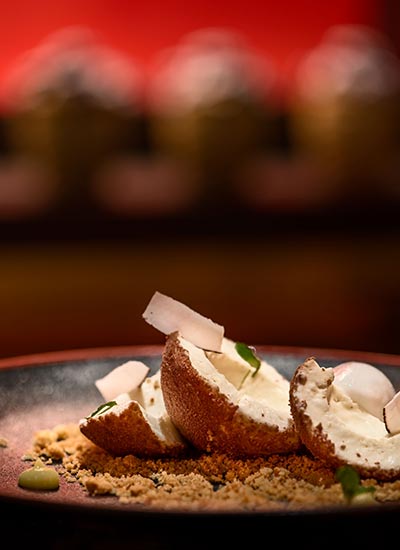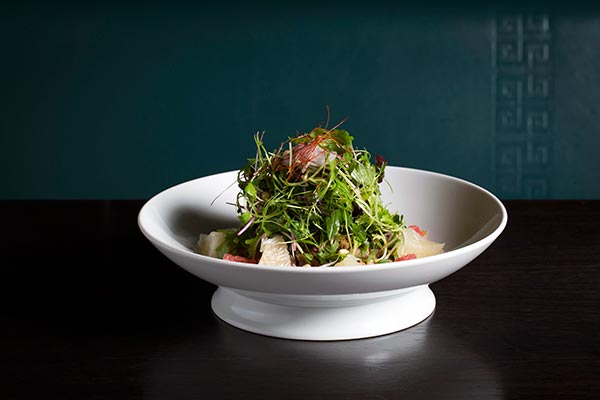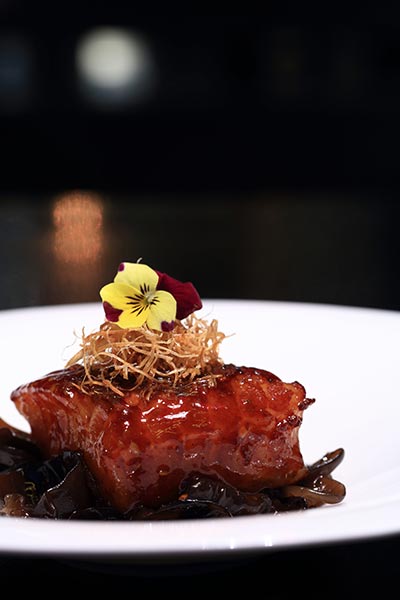Taster's choice on Beijing's Brunch Week
 |
|
The newly launched Brunch Weekend, an event running June 18-19 and 25-26 in Shanghai and Beijing, offers a good opportunity for those who love to dine out. [Photo provided to China Daily] |
But less than six years after the goal was set, and painted in red against the black sketches of Shanghai's skyline at their office entrance, the two co-founders of Dining City Asia seem well on their way.
As the brains and energy behind China Restaurant Week, a popular culinary event for foodies in cities like Shanghai, Beijing and Hong Kong, they have connected 400 restaurants across the country with 100,000 diners. In the process, they say they provide some outside policing for the food and beverage industry, publicizing reviews of "the most demanding and valuable diners" locally and helping the restaurants to improve in an increasingly competitive industry.
"Back in 2006 or '07, waiters here often just threw the menus on the table, and what's more surprising is that people actually found it OK. But now, we actually have reviews saying that the menu is too dirty," says Rooijmans, director of Dining City Asia, which introduced Restaurant Week to China in 2010, first in Shanghai.
A concept launched in New York City in 1992, Restaurant Week is an annual or semi-annual promotion in which eateries across a city offer multi-course dishes in specially priced set menus. Tim Zagat, who initiated the first Restaurant Week, once described the event as a "goodwill gesture to the 15,000 reporters coming to cover that year's Democratic National Convention" when it started.
 |
|
The newly launched Brunch Weekend, an event running June 18-19 and 25-26 in Shanghai and Beijing, offers a good opportunity for those who love to dine out. [Photo provided to China Daily] |
In the next decade, however, when the restaurant industry was stagnating in the wake of the 9/11 attack and then the global economic downturn, the idea went worldwide, spreading to 35 countries by different organizers.
In China, however, the incentive for both diners and restaurants to join the event took a rather different approach.
"It's more a social than culinary event for locals," Rooijmans tells China Daily before the kick-off of the newly launched Brunch Weekend, an event running June 18-19 and 25-26 in Shanghai and Beijing. He adds that Chinese love to dine out, and Restaurant Week offers a good opportunity.
The company, which also offers premium restaurant listings during the event, draws from its base of regular users who are 90 percent local and between the ages of 27 and 37, with 70 percent female. "In most cases, women decide where to eat," Rooijmans says with a grin.
The mix of expats and locals was about 50-50 back when Restaurant Week launched in China.
"We called it a 'Wagas or Element Fresh phenomenon'", says Rooijmans, meaning that when a Western-style restaurant opens, expats are the first wave of diners. But as the restaurant's popularity grows, the local population follows and keeps the business growing.
"The change of percentage is actually not because laowai stop coming, but because there are more local people joining," adds Schreurs, an Italian veteran of the Shanghai dining industry since 2006, working at places like Lounge 18 on the Bund and Le Royal Meridien before launching Dining City.
 |
|
The newly launched Brunch Weekend, an event running June 18-19 and 25-26 in Shanghai and Beijing, offers a good opportunity for those who love to dine out. [Photo provided to China Daily] |
Despite the popularity of the event, which has spread to eight cities with Restaurant Week, Brunch Weekend and the premium Elite Dining Week, some participating restaurants have questioned its effectiveness at bringing repeat customers for regular-priced meals.
Schreurs, however, insists that if the diners are not coming back after the promotion, "It means there is something wrong with the experience. You cannot blame the platform," he says.
He also notes that Restaurant Week is not like other discount sites or Dianping.com, the most popular listing website in China with more than 250 million users, which also sells groupons. While most discount websites take a commission from each meal sold, he says Dining City makes a profit by charging membership fees from each restaurant.
The biggest change he has seen in the local dining industry is the diversity of cuisines offered and how local people embrace them at an amazing speed.
Some diners book 10 restaurants within the Restaurant Week in order to try different types of cuisines, he says.
While Italian restaurants remain the biggest category on the site, Schreurs says, steakhouses are the fastest-growing category.
Related:






















